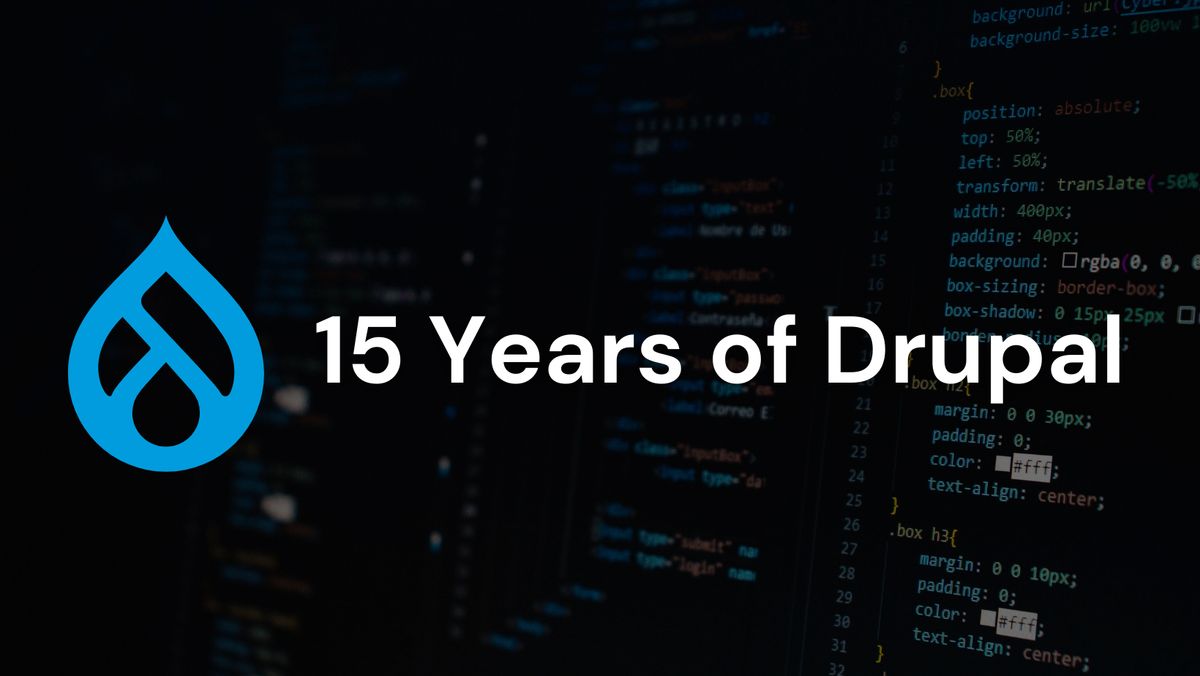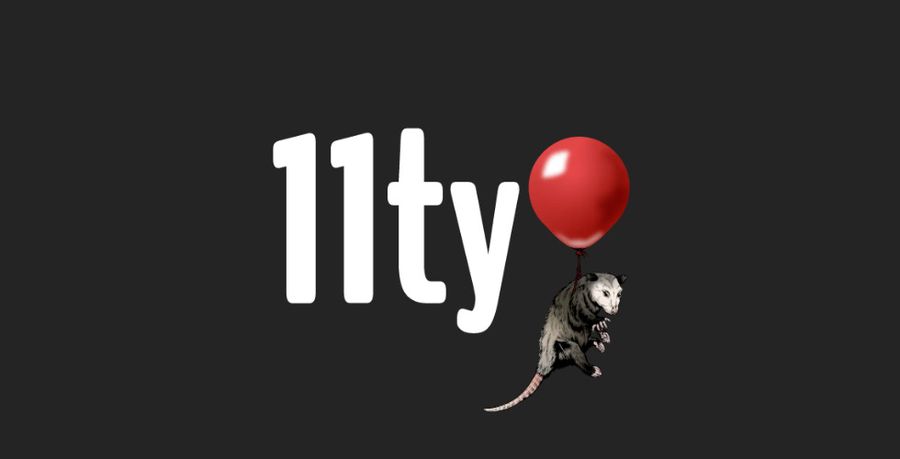15 Years of Drupal
A look back at the platform that started it all
Humble Beginnings
My path to Drupal started as a digital designer who wanted to do more on the web without coding everything from scratch. Low-code solutions are all the rage now, but for me, Drupal was my first low-code solution. I was still able to deliver engaging, data-rich experiences while still building up my skills as a developer. As I tried other platforms, it felt like I would always reach a point in the project where I'd think, "this would be much easier to do in Drupal." Weird take, maybe - but Drupal just clicked for me.
One of the early Drupal projects I worked on was to create a bug tracker. The Drupal site pulled project data out of another project management application into Drupal, allowed users to create tickets based on those projects, and the ability to assign tasks to a developer for remediation. You could call this a non-standard application for Drupal, but projects like this helped form my option that Drupal isn't just another tool for building websites. In my mind, Drupal was always a framework that could be used to build websites, applications, power your mobile app, or launch your commerce solution. If you could dream it, you could build it on this platform.
Restoring the Magic
It's now 2022 and the technology landscape has changed. JavaScript continues to eat the world and organizations are moving to composable architectures - where does Drupal fit into the picture? After more than 20 years on the market, how does Drupal remain competitive in 2022 and beyond? How do we take the flexibility of the platform and the features that initially got us excited about Drupal and create that experience for the next generation of developers?
Fortunately, there are several strategic initiatives actively working to address these questions:
- Automatic Updates aims to automate the process of installing security updates in Drupal.
- Decoupled Menus aims to create the best way for JavaScript frontends to consume configure menus managed in Drupal.
- Easy out of the box, as the name suggests, is a proposal to make working with Drupal easier by enabling an updated admin theme (Claro), the new media library, and layout building tools by default.
- GitLab Acceleration is attempting to make the process of contributing to Drupal easier.
- New Front-End Theme will provide a modern, accessible default theme (Olivero) that will improve first impressions when new users are exposed to Drupal.
- Project Browser aims to make it easier to find and install contributed modules in Drupal.
Enter Complexity
Let's also take a moment to talk about enterprise software. Unfortunately, enterprise can be synonymous with complex. For others that have been part of the Drupal community from the early days, it can feel like the platform has become more complex as more features have been added. Additionally, other products in the market may not be as feature-rich but allow marketers to get up and running quickly.
The reality is Drupal probably isn't the tool you need for your brochureware site. Or the platform you should adopt for your "dev team of one" that is already swimming in open tickets from various parts of your organization. Or the solution you lean on if you're looking for something quick and light. Just because Drupal can doesn't mean Drupal should. As technologists, we should start by trying to define the problem. We take steps to address the issue and what tech we recommend comes later.
That said, modern Drupal is still a strong option for organizations looking to build on an open, flexible set of tools. You can structure your data sensibly, go headless (or don't), plug into a headless commerce solution, or add third-party search solutions, completely customize the look of the frontend (or backend), or start with a basic site now with the comfort of knowing you can pivot quickly as the needs of your organization evolve. While this may not be the most elegantly stated rationale, this is why I'm still bullish on Drupal 2022. It's not suitable for everything, but it's incredibly powerful and flexible when used correctly.
What You Can Do
- Get Involved - If you haven't been involved in the Drupal community, the next best time to start is now. There are plenty of ways to support the Drupal project and supported modules. Don't know where to start? Check out the initiatives above, get involved with your local camps/meetups, join the Drupal Slack channel, and consider becoming a member of the Drupal Association.
- Teach Others - If you've been part of the Drupal community for any length of time, look out for others that are stuck or trying to level up. Be engaged in the community and be looking for opportunities to remove roadblocks for others.
- Be Informed - This may be counterintuitive, but be aware of the other players in the market. We need to be careful of platform tunnel vision and incremental improvements to an isolated set of problems. Take time to check out other platforms and use those learnings to shift your thinking, encourage new ideas, and educate yourself on the different options out there. All boats rise when the technologies we use get better - regardless of the community.
Thank you, Drupal, for the last 15 years. After all this time, the future is still bright.




